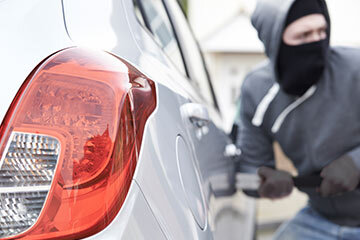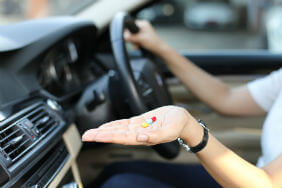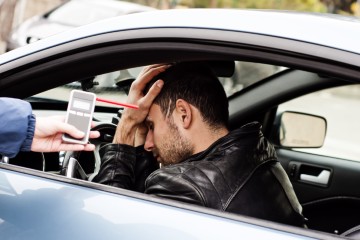Operation Snap: What it is and what it's used for
Operation Snap is a secure online platform where people can share dashcam footage of accidents or incidents that have happened while driving.
The police started Operation Snap in response to the sheer amount of video and photographic evidence that people were submitting. Before Operation Snap, people used lots of different methods to submit footage, but Operation Snap's streamlined process aims to make it easier for everyone involved.
Reporting dashcam footage - what you need to do
If you witness an incident
- Make sure you save the dashcam footage when you're safely stopped. Some dashcams delete footage after a certain time. Note down the time, date and location of the incident.
- Go to Operation Snap, or our tool and submit your footage. Include the time, date and location you recorded after the incident. Give a brief description of what happened and add your contact details too.
- Upload the video file - try to make sure it's the original, unedited file. Keep a back up too, just in case.
If you’re in an accident
- Save a copy of the footage immediately so it doesn't get overwritten. Note down the time, date and location.
- Send the footage over to your insurer when you report the accident (make sure you tell your insurer, even if you don't plan on claiming).
- Submit your footage using our tool, or through Operation Snap. Include the time, date and location you recorded after the incident. Give a brief description of what happened and add your contact details too. Make sure you upload the original, unedited file and keep a back up.
In Scotland and Northern Ireland
In Northern Ireland, after you’ve contacted 101 or 999 and spoken to a police officer - you’ll automatically get an invite to share your digital evidence from this email address: DigitalEvidence@psni.police.uk
Follow the instructions on this email to submit your footage.
Whatever you do, don't post the footage on social media. It could affect the investigation, and get you into trouble if people or vehicles are clearly identifiable.
Dashcams and insurance: What you need to know
In fact, over 2 in 5 (43%) motorists told us that the reason they bought a dashcam was to protect themselves if there was an accident or incident. Some insurers might give you a discount on your car insurance price if you have a dashcam, but it varies depending on the insurer.
The insurers that do offer a discount usually offer a 5-10% discount. But it doesn't stop other factors like claims history, location or car type affecting your price.
More than 1 in 5 (22%) chose a dashcam because it improved safety and security when there car was parked.
Remember, if you tell your insurer that you have a dashcam, you'll need to give them the footage when they ask for it. Otherwise it could work against you when it comes to claiming.
Need more help?
What happens after I submit my footage?
First, the police review the footage - if it's blurry or unclear, the police won't act on it. They'll also check if the footage shows an actual offence, they can't act on it if it's just a case of bad manners.
If they do decide to act on the footage, the offender (or offenders) could get a:
- Warning letter or they might be offered some 'driver education'.
- Fixed penalty notice if they've been caught using a phone, not wearing a seatbelt or speeding, for example.
- Court summons for more serious offences, like dangerous driving.
In some cases they might not do anything at all. If the footage isn't clear or doesn't show an offence then the authorities won't have enough evidence to prosecute.
Generally you don't hear any update other than "case closed" or "action taken". The police won't tell you the driver's penalty because it's a breach of data protection.
Will I have to go to court if I report dashcam footage?
Potentially yes, when you submit dashcam footage you agree to be a potential witness. So if a case goes to court, you might need to give a written statement or appear in person.
If you decide not to do this, the police might decide to drop the case.
Can I report an incident that happened a while ago?
Submit the footage as soon after the incident as possible. Operation Snap advise within 10-14 days because dashcam memory cards overwrite regularly.
Also, if you're asked to be a witness, your recollection could fade over time. It's also harder for the police to chase up evidence weeks later.
For most motoring offences there's a 6-month time limit for prosecution. More serious offences don't have a time limit - but it's still a good idea to submit footage as soon as you can.
You could still try and submit your footage even if it's older. Just be prepared for a response saying it's too late to submit your footage.
Can I submit a video I recorded on my phone as a passenger?
Yes you can, Operation Snap accepts footage from phones, Go Pros, helmet cams and CCTV.
As long as you were the passenger and not the driver at the time of the recording, you can submit the footage.
It also needs to have a clear view of the offence. The police won't act on the footage if it doesn't capture enough context or is shaky or out of focus.
You'll also need to upload the original, unedited clip if possible.



